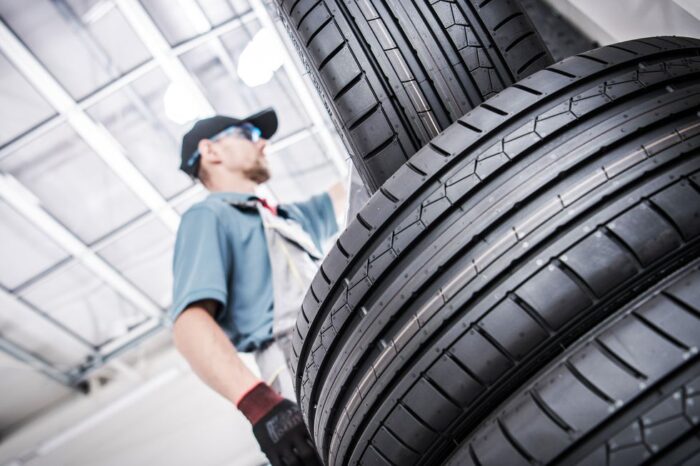
There are so many factors to consider while looking for the perfect tires for your vehicle. And while size, price, durability and performance are crucial, there is something else people often look into – the brand. But how exactly can this information influence our behavior?
A brand is not just any tire manufacturing company with a name and a logo attached to it. A brand is, first and foremost, a reputation built throughout the years. We often associate certain tire brands with a price range, particular styles, performance expectations, etc. So, the brands basically help us narrow down the choices and provide some quality guarantees. You can find out more about the popular, affordable tire brands on wheelssize.com.

Does a Tire Brand Name Equal Quality?
While the brand name is a factor, it’s not the most critical one. The quality of the tire is more dependent on its price point – generally speaking, the more expensive the tire, the better it will perform. However, with so many options available from each manufacturer, it can be challenging to make generalizations about which tires are best. Ultimately, it’s essential to do your research and choose a tire that fits your specific needs and budget.
In the tire industry, brand recognition can be a helpful indicator of quality, although it’s not always a foolproof method. While some lesser-known brands may produce high-quality tires, well-established brands have built their reputation on consistent quality and performance over time. Consumers are often drawn to recognizable names when making purchasing decisions, as these names have become synonymous with quality in the minds of many. However, it’s still important to do your research and consider other factors, such as price point and specific tire features, when selecting the best option for your needs.

Cheap Tire Brands and Expensive Tire Brands?
Some brands are known for their affordability, while others come with a higher price tag. Cheap tire brands may be appealing due to their lower cost, but they can also come with drawbacks. Low-cost tires may seem like a great deal upfront, but their shorter lifespan can cost you more in the long run. Often they don’t last as long as higher-end brands, so you’ll end up needing to replace them more often and spending extra money over time. Furthermore, cheaper tires tend not to work well when conditions are wet or icy—which could put your safety at risk while on the road.
On the contrary, high-end tire brands tend to provide extra features such as enhanced handling and long life. This makes them a common choice for those looking for both security and performance out of their tires. Ultimately, deciding on the right tire brand is highly dependent on your needs and budget. To ensure you get the best deal possible, it’s essential to consider crucial factors like driving conditions, desired specifications, and potential lasting costs before investing in any particular tire brand.

Is There Any Difference Between Top Tire Brands?
There is a tempting idea to just pick any high-end brand and select tires there because they should all be great. But such a generalization is far from being the easiest correct approach. While top tire brands may only differ slightly in terms of overall performance and safety, some consumers might still prefer one over the other due to factors like brand loyalty, pricing, or features that matter to them.
When selecting tires for your vehicle, it’s essential to consider the features of different brands. While some might provide increased traction in wet or icy conditions, others may boast a longer tread life or a lower rolling resistance that boosts fuel efficiency. Whichever you choose, each feature can have an impact on the performance and longevity of your tires.
Additionally, tire manufacturers may use different production methods that can impact the quality, longevity and functioning of their tires. To ensure maximum efficiency and reliability, some brands allocate more resources to research unique materials or develop advanced fabrication techniques.

Are Expensive Tire Brands Inherently Better?
Well, not necessarily. There are plenty of budget-friendly tire brands that provide features such as improved handling, increased performance and a longer lifespan. Even though more expensive tire brands offer these advantages too, it doesn’t mean you need to break the bank for them when there’s an affordable option out there.
Investing in a quality set of tires can be daunting – with so many factors to consider, such as materials used, manufacturing method and design. While some higher-priced brands may employ premium components and innovative technologies, you don’t always have to break the bank. Some budget tire models may use comparable materials and tech at more economical prices.
All in all, the most decisive factor when choosing a tire is its intended use and how satisfactory it is under realistic conditions. Before selecting a tire, you must be aware of the environmental and driving circumstances. If your area receives heavy rainfall or snowfall, then opt for a tire with superior wet conditions and winter traction capabilities. Alternatively, if mostly drive on highways at higher speeds then select one that offers optimal handling as well as stability.

What’s in a Tire Brand?
When it comes to buying tires, name recognition can be a valuable indicator of quality. While it’s not always a guarantee of excellence, a strong market presence and reputation suggest that the company has invested in R&D, testing facilities, and quality control measures to back up its premium status. Top premium tire manufacturers offer exceptional performance and reliability that have earned them household names.
A brand name often encompasses:
- manufacturing processes and innovations
- quality control
- a unique set of features and designs
- specialization for a certain type of vehicle or driving styles
- consistency in materials, durability and service life
- warranty
Of course, big tire brands cost some extra money, but usually, it is well worth it. These companies have established themselves as leaders in the industry by consistently producing high-quality tires that meet or exceed customer expectations. So while it’s important to consider other factors when choosing tires, such as intended use and realistic conditions, brand reputation is certainly worth taking into account.











